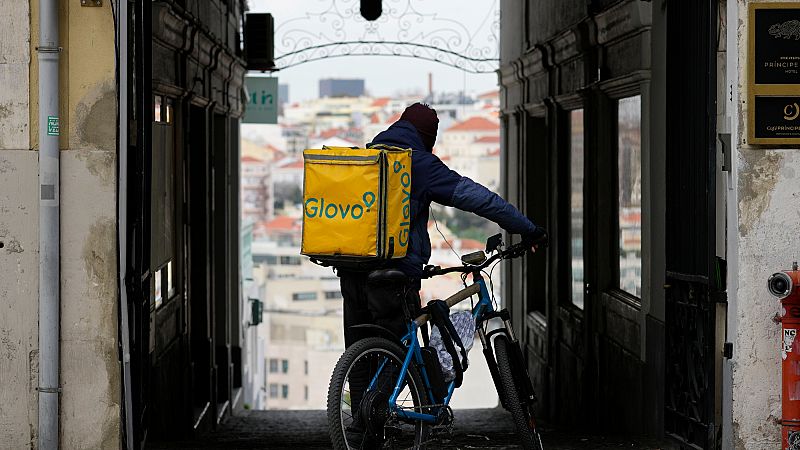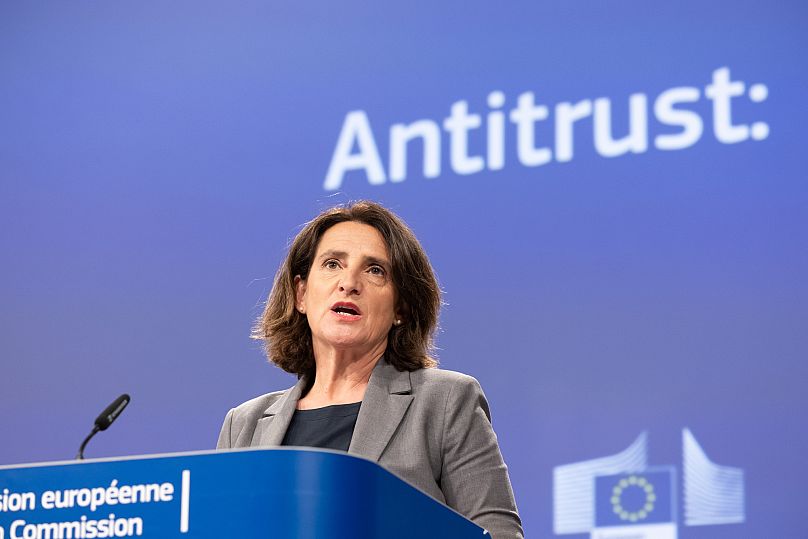
The Commission’s investigation into anti-competitive agreements between Germany’s Delivery Hero and Spain’s Glovo, two of Europe’s largest food delivery companies, has seen the companies slapped with a total fine of €329 million.
The companies were found to have violated EU competition rules by participating in a cartel that manipulated the online ordering and delivery of food, groceries and other daily consumer goods.
This case sets an important precedent, as it's the first time the EU has sanctioned the anti-competitive use of a minority shareholding, highlighting how small stakes in a competing business can be misused to restrict competition.
“Of course, owning a stake in a competitor is not illegal. But it may be problematic when that stake is used to gain inside information and influence decisions in ways that can harm competition,” said the Commission’s executive vice president in charge of competition, Teresa Ribera.
It is also the first case of EU antitrust enforcement concerning labour markets, as the Commission found that the cartel between Delivery Hero and Glovo included agreements not to hire or poach each other’s employees - practices that, according to the EU executive, reduce job opportunities for workers.
“This investigation shows that competition rules aren't just about keeping prices down,” said Ribera, adding that EU antitrust rules also help ensure “a fair labour market where employers compete for talent and do not collude to limit the number and quality and opportunities for workers.”
Minor stakes, major fines
Beginning in July 2018, Delivery Hero acquired a minority share in Glovo, which it gradually increased through further investments. Four years later, in 2022, it gained sole control over Glovo.
In June 2022 and again in November 2023, the Commission carried out unannounced inspections at the companies’ premises as part of a self-initiated inquiry into possible collusion in the food delivery sector.
The Commission concluded that from July 2018 to July 2022, Delivery Hero and Glovo progressively dismantled competitive constraints between them and replaced normal market rivalry with layered anti-competitive coordination.
The infringement ended in 2022 when Delivery Hero formally acquired a majority stake in Glovo, making it a subsidiary.
Both companies acknowledged their involvement in the cartel and agreed to settle the case, a procedure introduced in 2008 that allows firms to accept liability and the proposed fines.
In return for cooperating and waiving certain procedural rights, both companies received a standard 10% reduction in their fines: approximately €223 million for Delivery Hero and €106 million for Glovo.
Sharing the pie

Central to the Commission’s findings was Delivery Hero’s minority shareholding in Glovo, which enabled and facilitated the unlawful coordination.
According to the investigation, this minority shareholding created a channel through which the two companies coordinated their operations and strategies.
“They exchanged sensitive information beyond what was needed for a corporate investor to protect a financial investment decision,” said the Commission’s Ribera.
The information exchanged included commercial strategies, pricing, capacity, costs, product characteristics, and the organisation of rider distribution networks.
“They discussed virtually everything. And of course, this could only lead them to potentially align their content on the market,” said a senior EU official.
The companies also divided geographic markets across Europe: They avoided entering each other’s national markets and coordinated market entries where neither was present, effectively eliminating direct competition between them.
Another major element of the infringement was the agreement not to hire or actively approach each other’s employees - the so-called ‘no-poach’ agreements, which are considered a form of purchasing cartel.
“In other words, companies stop directly competing for workers. This is not good for workers, as it is the type of agreement that suppresses wages and reduces labour mobility,” Ribera explained.
Possible developments
Ribera noted that the Commission will pay more attention to the competitive risks posed by minority shareholder agreements.
“I think it is not necessarily bad. On the contrary, it may be very good,” Ribera said about the practice, clarifying that it is reasonable for a shareholder to access relevant information to ensure sound investment decisions.
However, she drew a clear line at the misuse of sensitive information, particularly when such access goes beyond what is necessary for a shareholder and could restrict competition in a given sector.
The Commission, she said, will be vigilant in preventing such behaviour from occurring in other industries.







